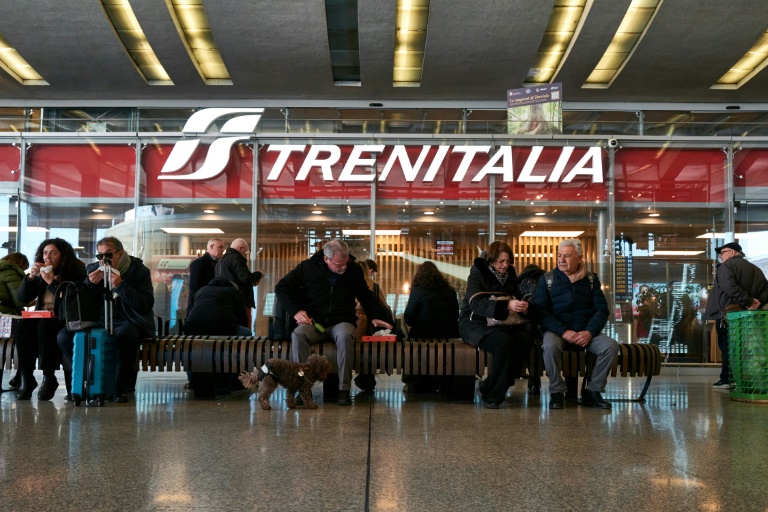Last week, passengers on an Italian high-speed train faced significant disruption when the train departed approximately one hour earlier than scheduled, leaving many stranded. The situation arose amidst a national transport strike that affected local buses, trams, and the subway, causing heightened anxiety among travelers at Rome’s Termini station. The high-speed train, named the “Silver Arrow,” was set to leave for Genoa at 4:20 pm. However, unbeknownst to many passengers, it actually departed at 3:30 pm, leading to confusion and frustration as they frantically searched the departure board.
The early departure was necessitated by a need to take an alternative, slower route due to maintenance work on the regular line, which meant an earlier departure was required to adhere to the timetable. Unfortunately, many passengers, including a journalist from La Stampa, reported not receiving any advance warning about the change. This oversight resulted in the train leaving half empty, despite the large number of travelers present at the station during the strike.
In response to the backlash surrounding the events, Trenitalia, the train operator, claimed that only a “small number” of passengers were affected by the communication failure. Nevertheless, this incident sparked conversations about the efficacy of passenger notifications, particularly during times of high travel demand and service disruption. A report from La Stampa noted the ironic outcome of the situation: while passengers faced disarray due to the premature departure, Trenitalia’s statistics appeared improved with one less delayed train and one more on-time service.
For those who missed the train, Trenitalia assured that alternatives were available. Passengers had the option to board the next train departing at 4:57 pm or to claim a refund. This offered some consolation, although it did little to alleviate the frustration of having arrived on time only to be late for their journey due to an unexpected schedule change. The company emphasized ongoing efforts to maintain reliable service, noting that in 2023, its medium and long-distance lines recorded average delays of around nine minutes, a figure that seemed reasonable compared to past performance metrics.
As public transport systems continue to face pressures from strikes and maintenance issues, the importance of effective communication with passengers becomes paramount. Trenitalia’s struggle to notify customers of significant schedule changes serves as a case study in the repercussions of inadequate passenger services during critical transit times. Enhanced communication strategies, especially through digital notifications, could mitigate the risks of passenger confusion and ensure that travelers remain informed.
In conclusion, the incident with the “Silver Arrow” train highlights the broader challenges faced by public transportation operators in maintaining reliable service amidst operational disruptions. It underscores the necessity for timely communication and the responsibility of transport companies to prioritize passenger needs, particularly during national emergencies such as strikes. As train operators strive to optimize their service metrics, a focus on customer experience and responsiveness will be crucial for fostering trust and satisfaction among travelers.

